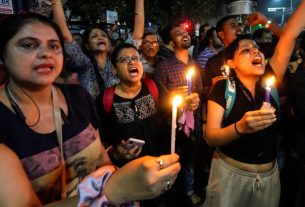Viktoriia Roshchyna, a 27-year-old Ukrainian investigative journalist, disappeared in the Russia-occupied part of the Zaporizka region of Ukraine in August 2023. A year later, she called her family from Russian custody. That was the only time they heard from their daughter after her disappearance.
During that call in August 2024, Roshchyna told her parents she loved them and that she would return home as part of a prisoner exchange by September. Instead, in October her parents received a three-line communication from Russian authorities stating that their daughter had died a month earlier.
Roshchyna’s family received no further information about the circumstances of her death until last week, when Ukraine’s Prosecutor General’s Office reported that Roshchyna’s body was identified among those of Ukrainian servicemen returned to Ukraine in February. The forensic examination found numerous signs consistent with torture and other inhuman treatment on her body, including bruising, a broken rib, and “possible signs of electrocution.”
An investigation by Ukrainian and international media found that Roshchyna had been detained for four months in Russia-occupied Melitopol, where she was held incommunicado and tortured with electric shocks. She was then transferred to a pretrial detention facility in Taganrog, Russia, known as a “hell on earth,” notorious for torturing Ukrainian prisoners of war and civilian detainees alike.
Human Rights Watch and other groups have extensivelydocumented enforced disappearances and torture by Russian forces during their occupation of Ukraine. We have found that Russian occupation forces in Khersonska and Zaporizka regions have arbitrarily detained, and in some cases forcibly disappeared, civilians, and unlawfully transferred many to Russian detention facilities where they were tortured. In March 2025, a United Nations investigation concluded that Russian authorities’ use of torture and enforced disappearances amount to crimes against humanity “as part of a widespread and systematic attack against the civilian population and pursuant to a coordinated state policy.”
Russia’s abhorrent treatment of Viktoriia Roshchyna and her subsequent death in Russian custody require urgent investigation and underscore the need for justice for atrocities. As talks continue around ending Russia’s war against Ukraine, all actors involved in negotiations need to ensure that in line with international law, there can be no amnesty for grave crimes, and that the immediate release of thousands of Ukrainian civilians unlawfully held by Russia is prioritized. Remaining in Russian custody means facing torture and other mistreatment.



